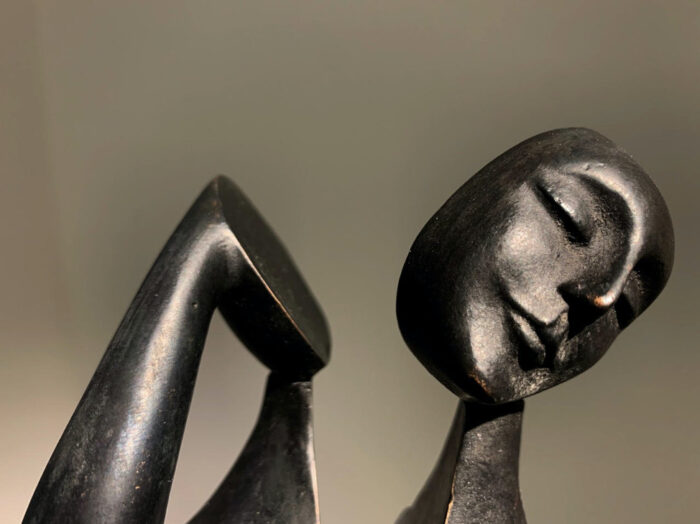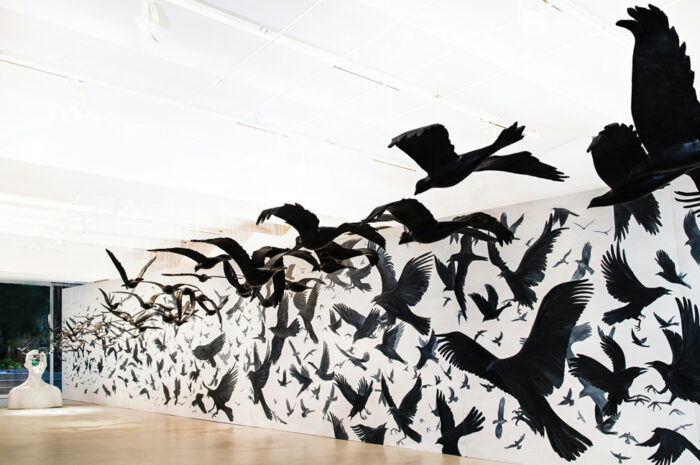
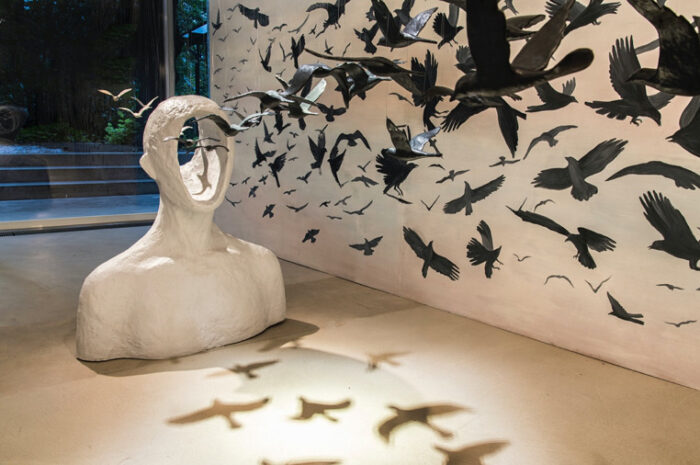 Tamara Kvesitadze, The Passage, 2020. Kornfeld Galerie, Berlin. Photo courtesy of the gallery.
Tamara Kvesitadze, The Passage, 2020. Kornfeld Galerie, Berlin. Photo courtesy of the gallery.
Tamara Kvesitadze’s Passage at Kornfeld Galerie
Sept 11 – Oct 31, 2020
All images courtesy of Kornfeld Galerie and the artist
Tamara Kvesitadze’ installation The Passage at Kornfeld Galerie, Berlin dramatically touches on the themes of transformation and hope central to this Georgian artist. We see a haunting corridor of decorative panels where birds are flocking towards the light coming from a white oversized cast of the human figure. These dark birds, inevitably reminiscent of Alfred Hitchcock’s sinister creatures animated by hate, approach from the painted walls then becoming three-dimensional winged bodies, made of hand-painted fiberglass. As they pass the figure, birds change their color to white, color of purity, underlining their transformation, almost becoming white doves of the Christian symbology. The Passage alludes to the purifying aspect of this trying year, when we are collectively assaulted by pain and absurdity not unlike Goya’s timeless figure haunted by bats. Yet, Kvesitadze seems to suggest that as humans it is within our capacity to sublimate this nightmare into sustenance and strength.
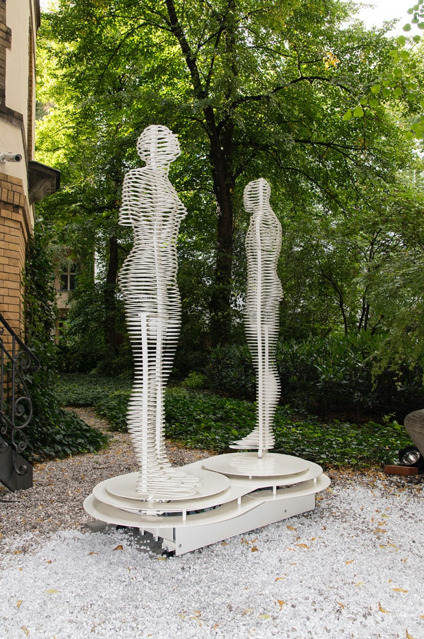
Kvesitadze follows a deep emotional current within all her sculptures and installations. Significantly influenced by Giacommetti, della Francesca as well as Arte Povera she combines latest technical possibilities with activating traditions of her own country, yet looking at the fundamental elements of human lives. Other works on display are Man and Woman, artist’s kinetic hymn to love and synthesis, but also clash, separation, and collision. Two figures follow their live circles sometimes coming through each other, inevitably transforming themselves until they are disconnected to meet yet again physically or mnemonically. By showing this timeless motion the artist reflects on what we all intuitively know, acknowledging the futility in Barthes’ terms as “in the realm of love, futility is not a “weakness” or an “absurdity”: it is a strong sign: the more futile, the more it signifies and the more it asserts itself as strength.”
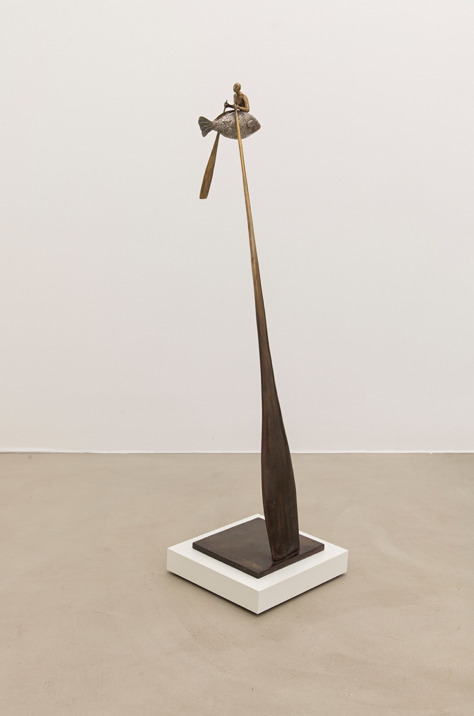
Man in Fish and Embrace are smaller sculptural works that both look at the themes of identities and self-containment. Man is rowing his boat considering himself the master of the sea while being enshrined in his loneliness. A woman is divided into parts referencing all her social and psychological states. Kvesitadze is not trying to be forcefully innovating in her creations, rather going for spare structures and nuanced study of human emotions.
As I interviewed Kvesitadze for my book King is Female: Three Artists from Georgia, published by Wienand Verlag in Berlin in 2018 I followed her artistic path over the years. In her artistic search Kvesitadze started with author dolls gradually adding kinetic elements to them, allowing the viewers to see what is normally hidden from outsiders; showing to the world what it means to be a woman within a traditional patriarchal society. She has been working in this medium ever since while consistently experimenting with size, volume, and humanistic currents that run through all the works. Major milestones of Kvesitadze’s artistic career include 26-foot kinetic sculpture Man and Woman in Batumi, Georgia; presentations at the Venice Biennale in 2007 and 2011 as well as recently completed 60-foot sculpture Sigh in Wuxi, China.
